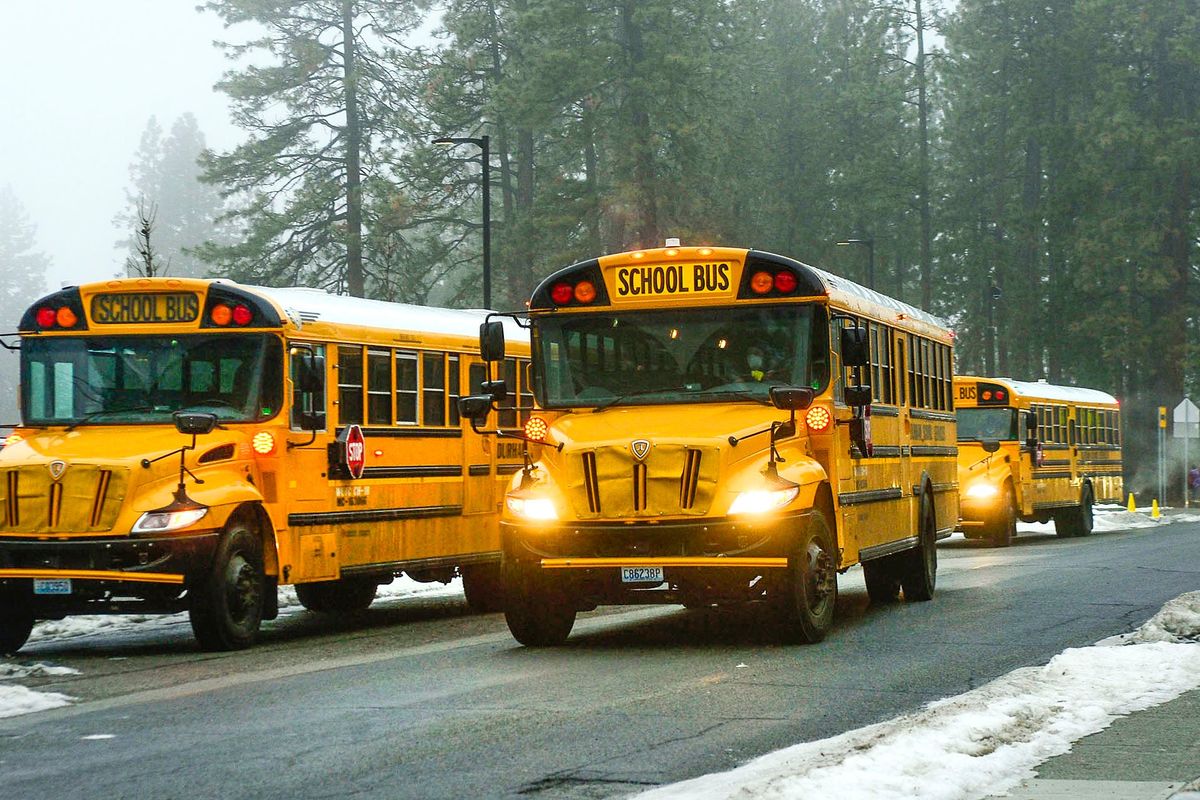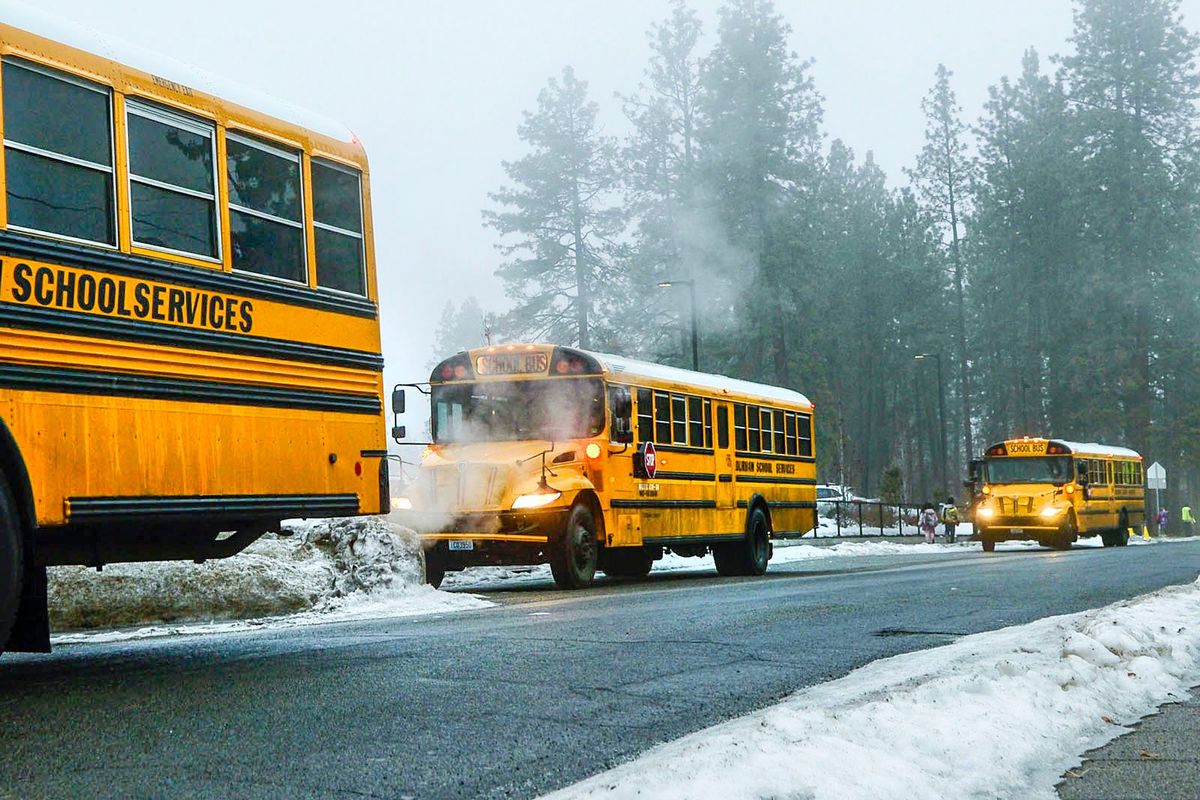Spokane schools taking closer look at school bus changes
Durham has provided busing services to Spokane Public Schools for 13 years. Struggles during the pandemic has SPS looking at different options to solve problems in getting children to class on time. (Liz Kishimoto/The Spokesman-Revi)
Spokane Public Schools is taking a closer look under the hood.
For almost half a century, the district has contracted with private companies to transport almost 7,000 students back and forth to school.
For the last 13 years, at a cost of $10 million to $13 million annually, that precious cargo has been handled by Durham School Services, a national firm headquartered in Illinois.
It’s been a bumpy ride lately, partly because of the pandemic but also due to Durham’s handling of the crisis. Problems have included COVID safety violations and chronic staff shortages, leaving school district personnel to fill the gaps on many occasions.
The district and Durham are in the fourth year of a 5-year contract – an opportune time, SPS leaders say, to look at possible alternatives.
“We’ve had a consistent practice of evaluating our systems, and this is consistent with this practice,” Superintendent Adam Swinyard said last week.
That doesn’t mean the district will soon lay out tens of millions of dollars and buy its own fleet of buses. However, that possibility is on the table.
The district has formed a special committee to study the situation. Its goal, according to documents shared at Wednesday ’s school board meeting, is to “establish a long-range plan that includes identifying strategies for enhancing the effectiveness and efficiency of transportation services.”
The committee draws from all sectors of the district, including teachers, students, parents, school board members and other stakeholders.
After several internal meetings, it gave an initial presentation to the school board Wednesday night. More meetings are scheduled, with the goal of presenting a recommendation to the district sometime this spring.
“We are looking at other models and what is going to provide the safest, most cost-effective solution,” said Shawn Jordan, the district’s chief operating officer.
Jordan emphasized that the group is in the early stages of its discussion. Topics include funding, legal requirements, the merits of the current setup and an examination of other models.
The issue is complex with many moving parts.
Until the mid-1970s the district owned and operated its own fleet. Since then it has contracted for those services, which since 2008 have been provided by Durham.
After a relatively smooth ride, the school transportation model in Spokane and elsewhere was upended by the COVID-19 pandemic.
Bus drivers, many of whom are retirees, balked at the additional requirements of the pandemic and resigned. Some quit in mid-shift, leaving students stranded at school or at a bus stop.
Twice last year, Durham’s operation in Spokane was fined by the Washington Department of Labor and Industries for operators’ failure to wear masks and follow other safety guidelines.
Most other districts in Spokane County operate their own bus fleets.
The two largest, Central Valley and Mead, acknowledged occasional driver shortages during the pandemic, but reported fewer problems delivering students on time.
Problems have worsened this year because of COVID. Many routes ran late or not at all, and central administration staff was called in at one point to drive vans.
The district has fielded hundreds of complaints from parents, though Jordan characterized most families as “very supportive” of the challenges faced by the District and Durham.
“But this is not just a Spokane challenge,” Jordan said.
“Certainly everyone across the country has dealt with the frustration, and that will be part of the discussion,” Jordan said.

